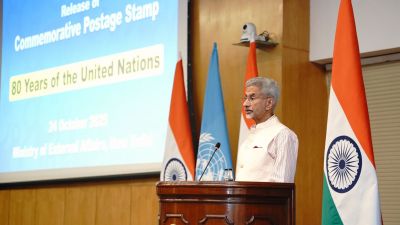One out of five Indians may have been exposed to the novel coronavirus until now, suggest the findings of a nationwide serological survey – indicating that the bulk of the population continues to remain susceptible to Covid-19.
The third nationwide serosurvey of its kind conducted between December 17, 2020, and January 8 this year, has returned an overall seroprevalence figure of 21.5 per cent among those surveyed.

The data show the highest prevalence of SARS-CoV-2 infection in children – a significant change from the findings of the second serosurvey.
Story continues below this ad
Results of the latest survey show a seroprevalence of 25.3 per cent in the age group 10-17; 19.9 per cent among those aged 18-44 years; and 23.4 per cent each among 45-60-year-olds and those older than 60.
Urban slums have reported the highest exposure to the virus (31.7 per cent); the number for rural India is, by contrast, only 19.1 per cent. This indicates that vaccination against Covid-19 is “necessary”, the government said on Thursday.
“The takeaway (from the serosurvey results) is that a large proportion of our population still remains vulnerable. More important to remember is that prevention is key and that vaccines are necessary,” Dr Balram Bhargava, Director General of the Indian Council of Medical Research (ICMR), said.
By looking for the presence of virus-specific antibodies in randomly chosen participants, serological surveys help to indirectly indicate the extent of the spread of the infection in the community at large.
Story continues below this ad
In terms of case numbers, India has been doing well in all states except Kerala and Maharashtra. The national death numbers and active case numbers have been consistently falling for several months now. The Union Health Ministry on Thursday said that over the last three weeks, 47 districts have reported no new cases, and 251 districts have not reported a Covid-19-linked death.
A general population of 28,589 and 7,171 healthcare workers were included in the serosurvey, which was conducted in the same 700 villages and wards in 70 districts from 21 states that were selected during the first and second national serosurveys. A hundred healthcare workers were evaluated in every district. The survey used the IGg antibody against S1 Receptor Binding Domain, which is the most sensitive test for a serosurvey.
The serosurvey showed that the prevalence of infection among females was 22.7 per cent, compared to 20.3 per cent among males. Among healthcare workers, overall seroprevalence was 25.7 per cent – 26.6 per cent among doctors/nurses; 25.4 per cent among paramedical staff; 25.3 per cent among field staff; and 24.9 per cent among admin staff.
The Centre said that 45 per cent of 96.31 lakh registered healthcare workers have so far been administered the first dose of the vaccine. The government also provided feedback data from the rapid assessment system (RAS) of the Ministry of Electronics & Information Technology, which showed 97 per cent of recipients were “satisfied with overall vaccination experience”.
Story continues below this ad
The feedback from 5.12 lakh beneficiaries showed that 88.95 per cent were informed about Adverse Event Following Immunization, 98.43 per cent said they were informed about the vaccination process and given the vaccine properly, and 97.13 per cent said they were asked to wait for 30 minutes post-vaccination for monitoring.
Thirteen states and Union Territories have covered 50 per cent or more of their healthcare workers, the government said. The top five states and UTs in terms of vaccine coverage are Madhya Pradesh (73.6 per cent), Rajasthan (66.8 per cent), Tripura (65.5 per cent), Mizoram (62 per cent), and Lakshadweep (62 per cent).
Eleven states and UTs have covered only 30 per cent or less of their healthcare workers. “We are having constant video conferencing with these states and have discussed how to increase vaccine coverage,” Union Health Secretary Rajesh Bhushan said.









